|
Walking into Target a few days ago I had one kid in the seat of the cart and the other standing up in the cart with his arms out by his sides pretending to fly. He has been standing in carts since he was old enough to pull up on the bars. He's also toppled over enough times IN the cart that he knows to hold on tight when I start pushing it and he's almost fallen out enough times that he keeps his feet firmly planted and his focus on his balance. In the event he were to fall over and I thought he might actually fall out (which is highly unlikely at his age and ability, I'd grab his shirt and hold him in, or it's likely I'd catch him before he hit the floor. So, why did strangers ALL feel the need to tell him, "Be careful"? Dont tell my kids to be careful! That's not what I want for them! I don't tell my kids to be careful because I don't want to imply there's something to be afraid of. I want them to grab life by te horns and go for it. I want them to be aware of dangers, sure, like drowning, fire, strangers, and knives, but in this instance there was literally NOTHING to be careful about. So, telling my son to be careful in a case like this could imply there's fear ahead. Instead, I prefer he stay in his active imagination and pretend hes flying as I not only speed up, but I also make an effort to hit speed bumbs and bounce over curbs. Risk within reason is how I run my house. A teacher who attended one of my workshops recently ased, "Are there any rules in your house?" I've been asked this question before and the answer is, "No". I don't really have any rules in my house. My kids don't really break rules because they're arent any. Instead, they govern themselves within the framework make choices with love. I find myself saying that often. When I see a hand pulled back to hit another, I'll gently grab the arm, pull him into a hug (disguised straight jacket)and say, "Make choices with love". Should a toy car go flying in the air, I may request "Make choices with love and drive the car on the table or the ground, please". The purpose of this method is to only set limits when limits need to be set. Toddlers are naturally going to try to push limits and test boundaries; its developmental. If I were to create a bunch of rules for them, their natural incliniation is to try to break those rules just to see what might happen. When a natural consequence could occur I allow that to happen such as a toy getting lost, a book getting torn, a sibling to fight back or be too angry to play the game. Perhaps its a dinner plate being put away until better manners are shown, but in my home we make choices with love and decisions are based on what's good for me and others around me. When they're playing, the last thing on my mind is whether or not they're being careful because as far as I'm concerned, if they're engaged in their play and are not harming themselves or others, by golly, let kids play! Follow me on JoinWholeHeart on Instagram and subscribe on youtube for more parenting tips! AuthorChelsea Vail, Join Whole Heart, inventor/entrepreneur and parenting specialist!
0 Comments
Get ready for this: Studies show that behavior management techniques are INEFFECTIVE without a strong parent-child relationship. Put that in your pipe and smoke it! And...wait for it...negative behaviors decrease when parent-child bond increases! So...how do we build stronger relationships with our kids? or1. Take the kids for ice cream This is not as literal as it sounds. Its a technique I used time and time again as a parent coach. "Take the kids for ice cream" means find time in your day (yes, every day) to do something special with your child where they are fully loved, accepted, supported and valued. It's hard to get angry or nitpicky with your child when you're chowing down on a frosty sweet treat, right? Whether it's an ice cream break, a quick trip to the park, a foot rub, or coloring together, set aside a break from ALL distractions physically, mentally and emotionally and just BE with your child. During this time you are forbidden from anger, lectures,or threats. Its all about love and attention. 2. Make every hello & goodbye a special event Whether I'm picking my kids up from school or dropping them off, watching them walk up the stairs to the slide at the park, or coming inside from taking the trash out, EVERY hello/goodbye is a special event sealed with an overdose of "I love you"s or "I missed you" and tons of hugs, kisses, and sweet words. These mini bursts of attention maintain excitement for togetherness and provide an ease in separation. They look forward to my departure just as much as they do my return and I'm also imprinting in their brains that although I sometimes leave, I always return, thus developing secure attachment. 3. Terms of endearment This is not my own. I stole this from a British grandmother I observed while I was a summer nanny for her grandkids. She began (and ended) every sentence with a term of endearment to show love. "Yes, my darling boy, what can I do for you, sweets?" and "Love, please don't climb on the counter, angel. You may get hurt, darling". I remember thinking to myself how incredible it must feel as a child to receive so many affirmations of love throughout the day, but when I applied this technique myself I noticed how much calmer I was as a caregiver and how much love I felt in turn! It's really phenomenal, but it must also be genuine. Kids have some seriously strong bull-shit-o-meters so choose words and phrases that feel comfortable to you. I have been known to call my son "potato head" and "butter biscuit" and although it's strange, he knows it comes from love and its unique to us. His teachers crack up too, which seems to make him feel special, lol. 4. I thought about you...
Think through a dating relationship, or times in your marriage, when your partner did something to let you know you were thought about. I used to think it was romantic when my husband put his boots in the corner of the room instead of smack dab in the middle. I thought, "Awe, he knows I get up every night for water and doesn't want me tripping over his boots". Now, this happened once for every 4000 times I actually did trip over them, but that's another story! Try to use this sentence stem throughout the day when you do things for your child to let them know they were thought about. Children are natrally egocentric so saying it aloud helps to internalize the feeling of being considerate (thus making them consider others). "I thought about you and grabbed a book for you to read in the car" or "I made tacos tonight because I know how much you like them" and "These animal pajamas are because I know animals bring you joy". This is a powerful technique! Use to excess! 5. Tell your child what you see in them and what they will be Sometimes I will literally tell my children, "I love you for all that you are and all that you will be", but otherwise it is not always as straight forward. One of my kiddos can be a real troll sometimes, but instead of giving him energy when he's acting like that, I'll wait for a moment he shows kindness and say, "I knew you were capable of kindness. I see such tenderness in your heart". When I watch them drag a chair over to the counter, turn the faucet on and wash their hands I may say, "You can do big things". By using statements like this, I'm relaying the message, "I see you, I believe in you, I expect great things from you" and that belief becomes a part of their inner dialogue. "Discipline" is a word that doesn't translate directly in many other languages. Many cultures find it odd how much we focus on discipline and negative behaviors. It's because in many cultures, parents and caregivers simply love their children without worry of their behavior. They don't focus on what's wrong with them or what needs molding and "fixing". Their focus is on acceptance and loving guidance. Negative behaviors will naturally drop away when a child is being raised in an environment of love and acceptance and when a parent expects their child to be successful, they just are. "Focus on the donut, not the hole" -Garry Landreth, PhD. Stay gold, Chelsea 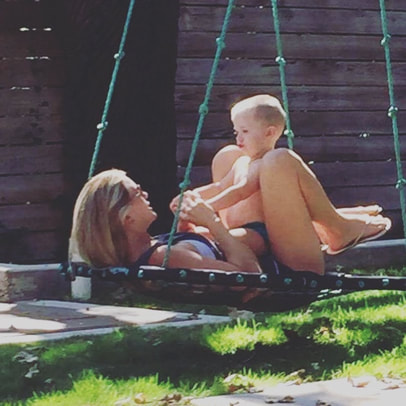 For the love of all things that sparkle, can we please stop saying unproductive things like, "good job" and "because I said so" to our children?! Think of kids like miniature adults. How many adults do you know who say, "I don't like anyone telling me what to do. I have to do things on my terms, because I want to do it"? I'm guessing a staggering number of you relate to that statement. We all do! And your children are no different! They don't think to themseles, "Because I'm not 18 years old yet, I'm still a minor and need adults in my life to tell me how to function, otherwise I have no clue how to operate." They don't think the because it isn't true! They're born with the instincts to survive and an innate desire for independence. Therefore, when adults yell at them, they perceive threat and fight back. This is commonly known as a tantrum. And, when they're told what to do, they often do the exact opposite. So, what can we do? Use this knowledge to make your life easier! 1. Engage, don't Enrage. Get down to your childs level and make eye contact. Smile, or touch them affectionately. This lets them know they're loved, accepted, and makes them open to receiving information. 2. Give them the control they seek. Control is like a boomerang. The more you give away, the more you get back. When children THINK they have control, they often comply. Here's how it works" The children are playing before school. You smile, acknowledge the lego tower they've built and pat their head before saying, "You're having so much fun. Will you choose to brush your teeth now or in five minutes?" They're likely to respond "five minutes", to which you respond, "Ok, great. I'll set the timer and when it rings you'll know it's time to brush your teeth! Isnt it exciting to wait for a bell?" Now, you've used empthy, positive touch, and given choices to put the responsibility back on the child. You sealed the interaction with excitement and anticipation for the bell. When the timer dings, they'll likely find joy in hearing it and knowing what to do WITHOUT being told what to do. No lecture, no anger, no threats! 3. Develop those intronsic motivators (aka feelings) Ask yourself, "why do I want my child to brush their teeth?" Well, they'll have clean teeth. Then, when they are brushing, you might choose to acknowkedge the feeling, "It feels good to have clean teeth!" "Why do I care if my child has a clean room?" Because being organized keeps the ind free of clutter, too, right? So, acknowledge that to your child, "I notice you're happier when your room is clean and you can find what you need". Intrinsic motivation can go on for days.... "You have more energy when you eat good food" "You sure slept better after playing outside yesterday" "It feels good to share with others" "You felt joy when you smiled at a new friend" "It felt nasty when you hit your sister" "You were grumpy when you stayed up late" "It feels good to work hard at a goal" By acknowkedging our children's feelings about things, we're developing the innate desire to make the right decision because it FEELS right, rather than doing something in order to get a prize or a "good job" from someone. The definition of integrity is doing what's right when noone is around, therefore, lets strengthen that moral compass from the inside out! |
Chelsea VailParenting expert, blogger, inventor, single mom to twins, barefoot nomad, adventure seeker, boho spirit, advocate of play Archives
March 2022
Categories |
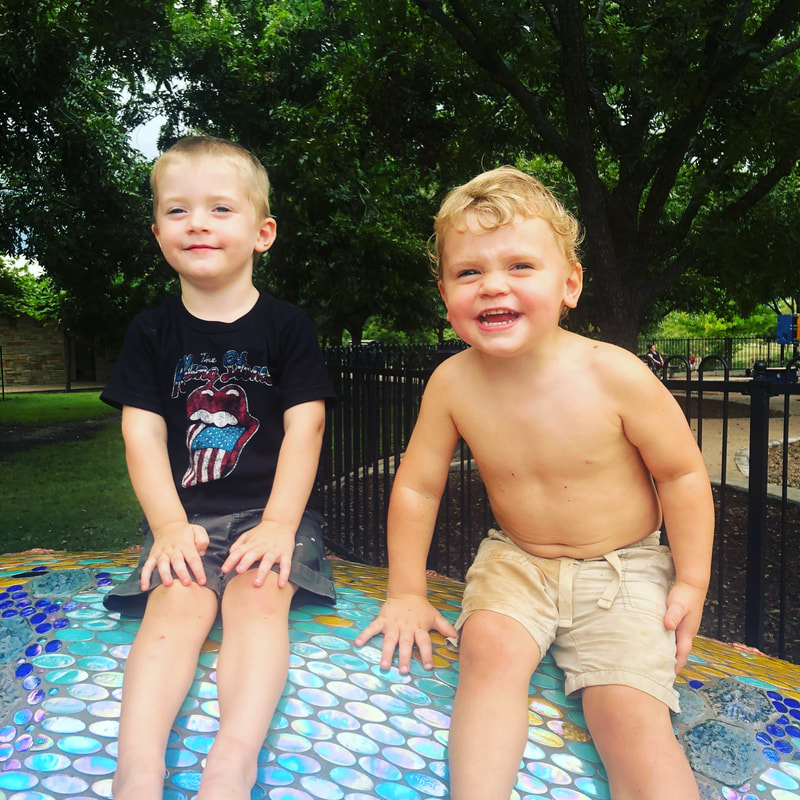
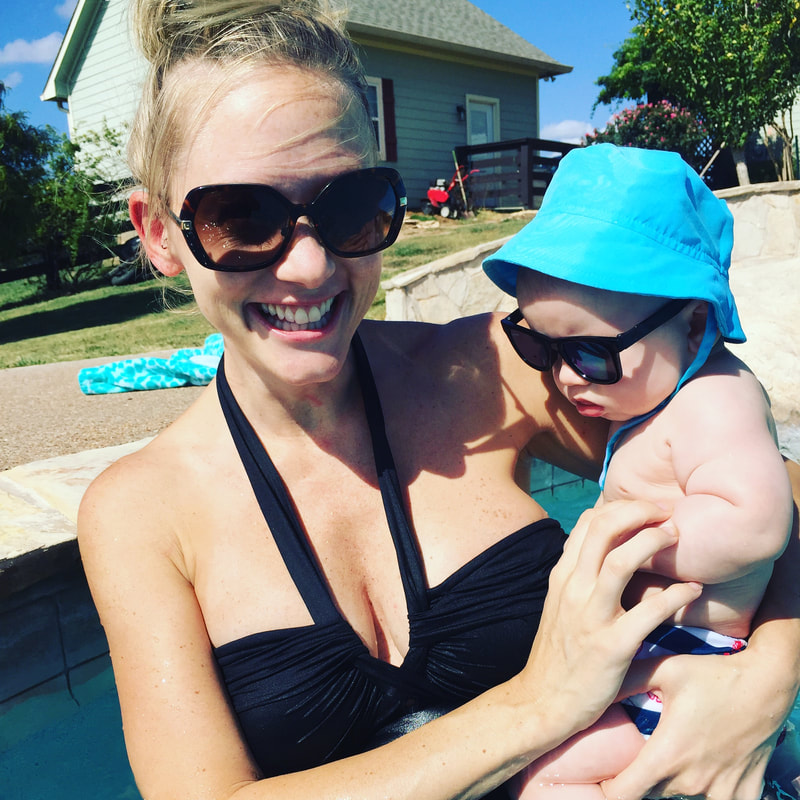
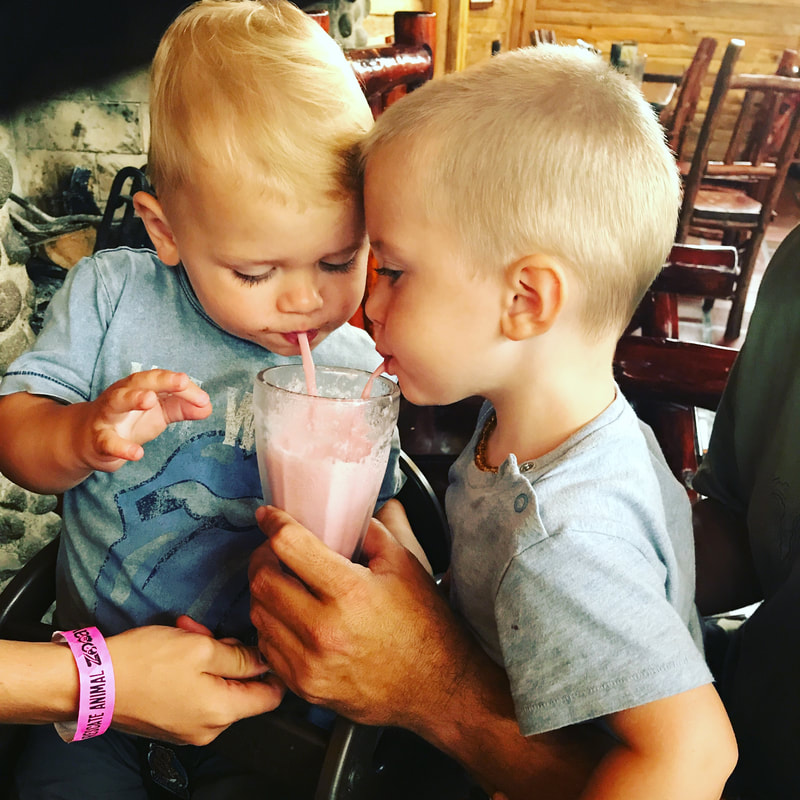
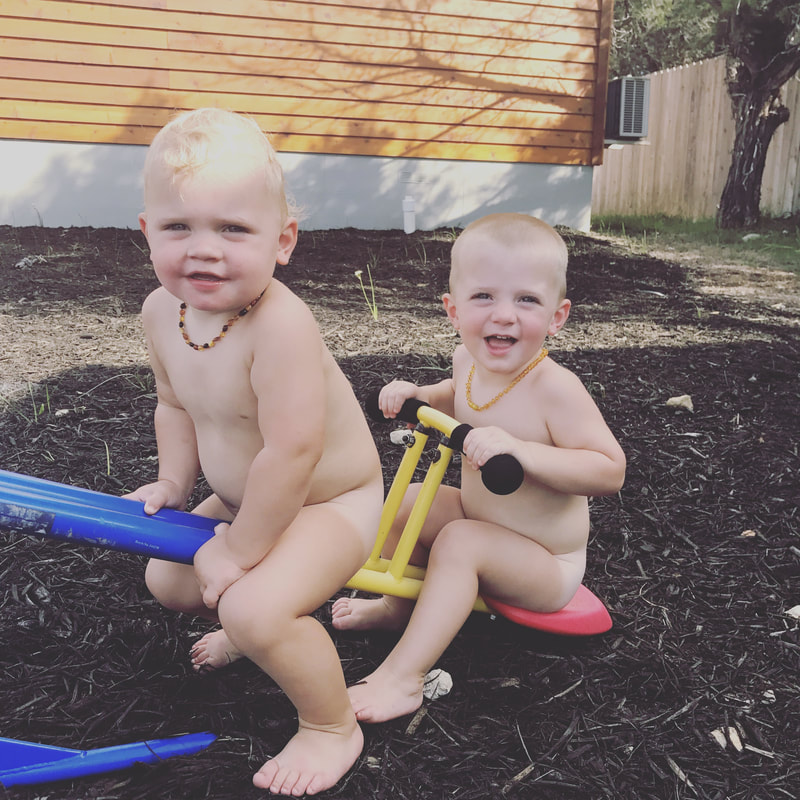
 RSS Feed
RSS Feed